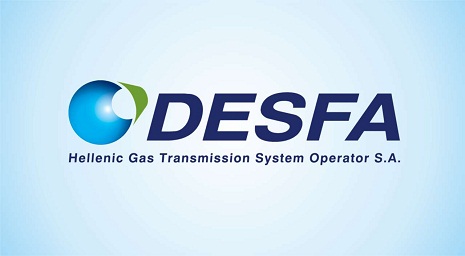Azerbaijan sees no conflict of interest in DESFA deal

Aliyev also noted that Azerbaijan, which won the tender for acquisition of stake in DESFA, is wondering why the European Commission is taking so long to decide if the deal is compatible with the EU law.
He also said that at a meeting in Brussels with European Commission’s Vice-President Maros Sefcovic, he conveyed his concern over the procedure.
In December 2013, SOCAR won the tender for acquisition of 66 percent stake in DESFA for 400 million euros. The remaining shares will belong to Greece.
But in November 2014, the European Commission opened an in-depth investigation to determine whether the acquisition of DESFA SOCAR is in line with the EU Merger Regulation.
The minister explained that from Azerbaijan`s perspective, there was no conflict of interest in acquiring the majority stake in SOCAR, because the owner of the gas to be pumped through the Southern Gas Corridor was not Azerbaijan, but the consortium of the Shah Deniz II gas field, from where it originates.
“As you know, in Shah Deniz, Azerbaijan has now a participation share of only 16.6 percent,” Aliyev said. “That’s why we don’t think one should look at Azerbaijan both as the owner, the transporter and the distributor of gas.
I hope that the European Commission will take this into account.”
The contract for development of the Shah Deniz offshore field was signed on June 4, 1996. The field’s reserve is estimated at 1.2 trillion cubic meters of gas. The shareholders are: BP, operator (28.8 percent), AzSD (10 percent), SGC Upstream (6.7 percent), Statoil (15.5 percent), Lukoil (10 percent), NICO (10 percent) and TPAO (19 percent).
The minister also commented on the recent visit of Azerbaijani President Ilham Aliyev to Bulgaria, where his host, Prime Minister Boyko Borissov, raised the issue of reviving the Nabucco project.
He said that Azerbaijan isn’t competing with Russia, which plans to export 63 billion cubic meters of gas per year to Southeastern Europe via the Turkish Stream project.
Natig Aliyev said that Azerbaijan will supply 10 billion cubic meters of gas to EU per year from 2019-2020. Meanwhile, the minister also reminded that Azerbaijan’s gas reserve is approximately 2.65 trillion cubic meters.
Aliyev said that the future projects that will bring additional gas supply, will likely be quite different from Nabucco. As a model for the future project, Aliyev mentioned the South East Europe Pipeline (SEEP), a proposal by BP dating from 2011, which will be largely based on the use of existing pipelines.
Nabucco West project was the rival of the Trans-Adriatic pipeline (TAP) project in competing for the transportation of Azerbaijani gas to European markets. Although the decision of the consortium for development of the Shah Deniz field was not in favor of this project, its planned route still remains relevant.
The concept of the Nabucco West project envisaged the construction of 1,300-kilometers long pipeline (412 kilometers running through Bulgaria, 469 kilometers – Romania, 384 kilometers – Hungary, 47 kilometers – Austria) from Turkish-Bulgarian border to Austria’s Baumgarten.
One of the priority energy projects for EU is the Southern Gas Corridor. This project is aimed at diversification of routes and sources of energy supply and thereby increase EU’s energy security.
The Southern Gas Corridor envisages the delivery of gas from Azerbaijan’s Shah Deniz gas and condensate field to Europe.
The final investment decision was made on Dec.17, 2013 on the Stage 2 of the Shah Deniz offshore gas and condensate field`s development. The gas produced at this field will first go to the European market (10 billion cubic meters), while six billion cubic meters of gas will be annually delivered to Turkey.
The contract for development of the Shah Deniz offshore field was signed on June 4, 1996. The field’s reserve is estimated at 1.2 trillion cubic meters of gas and 240 million metric tons of condensate.
As part of the second stage of the field’s development, gas will be exported to Turkey and European markets by expanding the South Caucasus gas pipeline and the construction of Trans-Anatolian (TANAP) and Trans-Adriatic (TAP) gas pipelines.















































